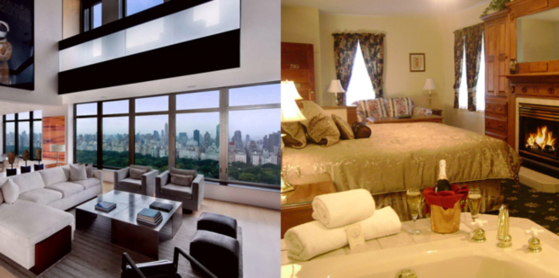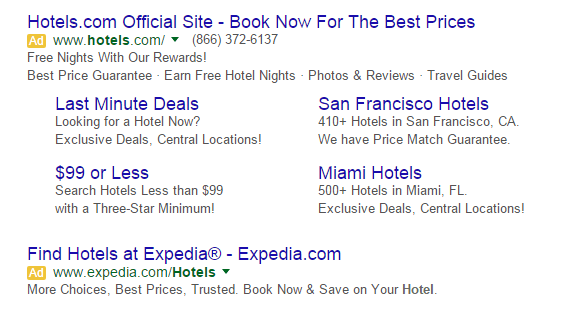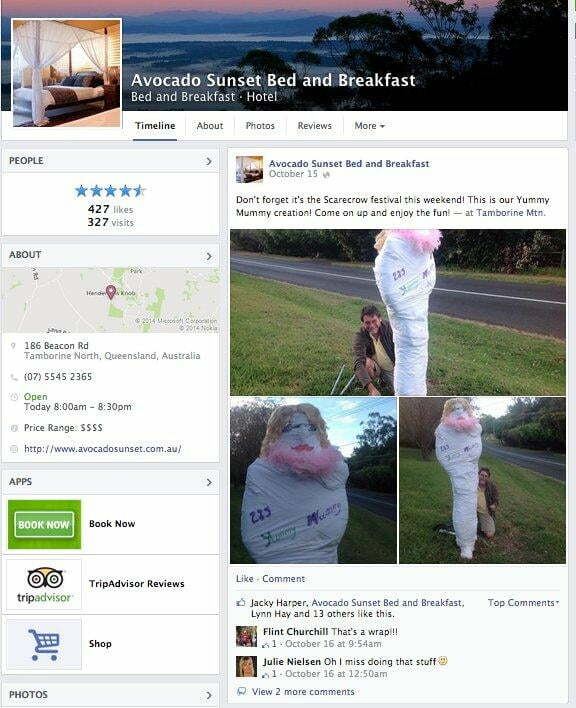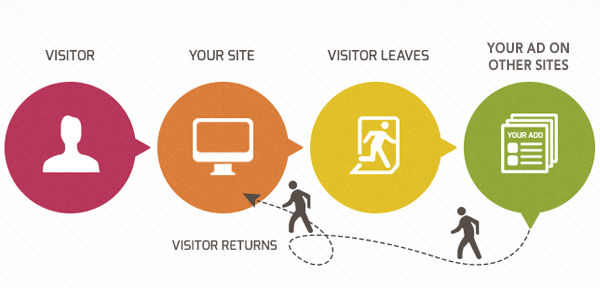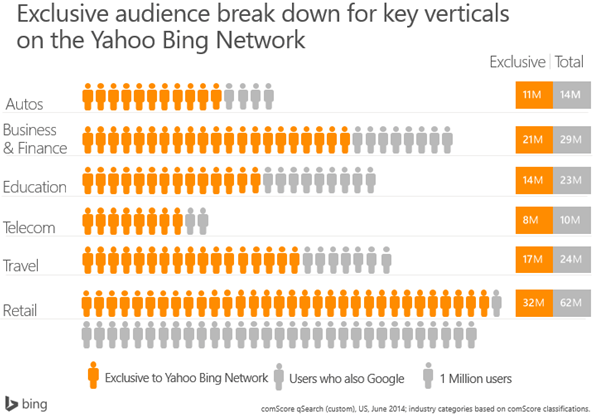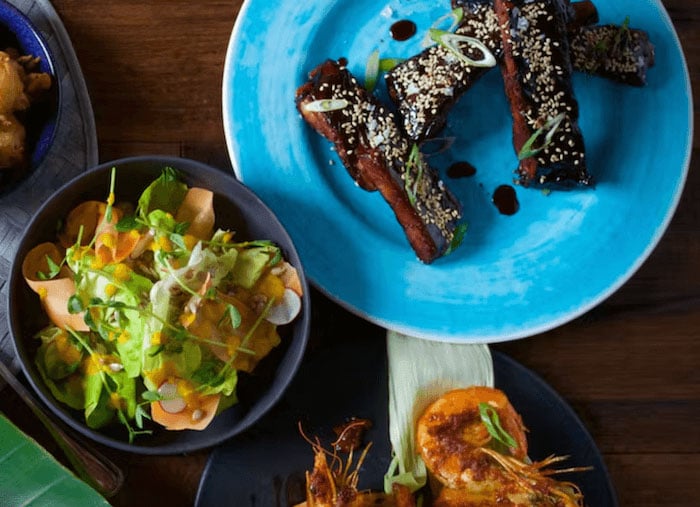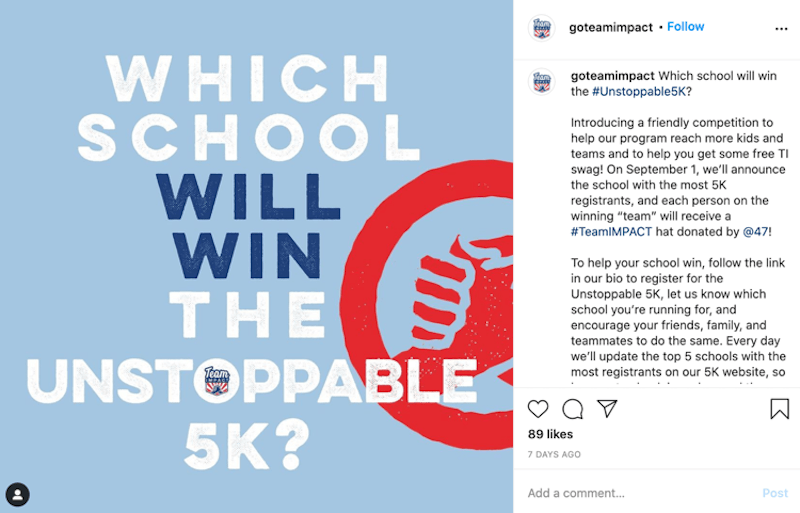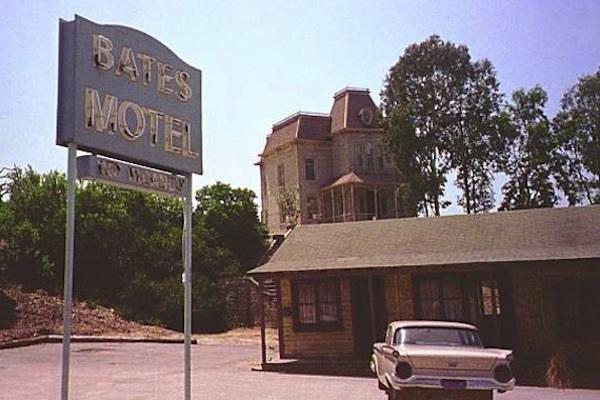
When I was thinking of how best to open this post on hotel marketing strategies, several possibilities occurred to me. I could’ve made a pithy reference to The Eagles’ seminal 1976 single “Hotel California.” I could’ve joked about staying out of Room 217, a tip of the hat to Stephen King’s classic 1977 horror novel The Shining (but definitely not the Stanley Kubrick cinematic adaptation, which while a perfectly good movie, is vastly inferior to King’s novel). I could have talked about the difficulties of running a remote motel while living with a domineering mother.
Fortunately for you, I decided against all of them, and chose to get straight to the point.
In today’s post, I’ll outline five ways hoteliers can use digital marketing to their advantage in a highly competitive market. We’ll be looking at strategies for PPC, paid social, and more general techniques that will help professionals in the hospitality industry stand out from the crowd – without a single joke about bellhops.
Hotel Marketing Tip #1. Use AdWords’ Hotel Ads
This tip might seem painfully obvious, but for hoteliers, it’s the most important.
AdWords’ hotel ads is the ad format of choice for hotels, guesthouses, bed and breakfasts, and any other type of hospitality business. Hotel ads allow your establishment to appear in an exclusive section of the SERP alongside other hotels, making them a highly prominent and very visible way to get your business in front of people who need a place to stay.
As you can see, hotel ads offer the user a great deal of information, including a star rating, a review summary, the average nightly rate, and an image of the hotel. This lets prospective guests identify potential places to stay at a glance, making it easier for them to narrow down an already bewildering list of choices and make a decision that aligns with their objectives (more on this shortly).
Needless to say, using hotel ads is an absolute must for hospitality businesses, so if you’re not taking advantage of this ad format to promote your establishment, you need to start. Now.
Hotel Marketing Tip #2: Figure Out What Your Ideal Customer REALLY Wants
Every business has its perfect customer, including hotels. However, just as every business has its ideal customer, virtually all businesses have a diverse client base, meaning that it’s crucial to figure out what your ideal customer really wants.
Most hotels focus almost exclusively on their amenities in an attempt to appeal to as wide a range of people as possible. This approach makes sense on the surface. After all, most people are looking for a minimal quality of comfort from their accommodations, regardless of the purpose of their trip. However, although it might seem counterintuitive, it might be more effective to focus on a narrower subset of customers and what they really want.
For example, if a majority of your best customers are frequent business travelers, it makes sense to zero in on this and advertise the amenities that best appeal to this demographic, whether it be on-site dry cleaning, complimentary livery services, or conferencing facilities. Conversely, if you run a rural bed-and-breakfast that caters to honeymooners and seasonal leaf-peepers, you may want to focus exclusively on your inn’s stunning country views, the peace and quiet of the surroundings, or the history of your establishment.
Of course, this doesn’t mean that a business traveler won’t be interested in the rural charm of your inn, or that honeymooners wouldn’t be tempted by the luxurious business-class amenities of a city hotel – but it does mean that, by trying to appeal to everybody, the impact of your marketing messaging could be diluted. Identify your ideal customers and their needs, and make that the central focus of your campaigns.
Hotel Marketing Tip #3: Use Aspirational Language in Your Ads
No matter where someone stays or why they’re traveling, there is an aspirational quality to travel. Oftentimes, it’s the disparity between how someone imagines a trip and the realities of traveling that leads to disappointment. If you’ve ever been sold on a trip by evocative images of your destination, only to find it’s run-down and infested with roaches, you’ll know what I mean.
Leveraging the aspirational quality of travel is one of the most powerful tools at your disposal as a marketer. If you can get your prospects to picture themselves enjoying the accommodations they imagine when they think of their trip – and actually deliver on this – you’re well on your way to creating happy, satisfied customers.
When writing your ad copy, picture the objectives of your customers. What do they want? How do they see themselves and their trip? Once you put yourself in your customers’ shoes, it’s much easier to craft ad copy that appeals to these desires and makes your copy more compelling.
Take this ad for Princess Cruises, for instance:
Granted, it’s not an ad for a hotel, but it perfectly exemplifies appealing to prospects’ desires with clever ad copy. Knowing that married couples with children are among its target market, Princess Cruises expertly uses desire as a motivator in its copy by promising “alone time” on their cruises.
Not only is using aspirational copy a major selling point to your prospects, it’s also a serious competitive advantage. Perform a search for hotels, and check out the kinds of ads you see:
Almost every single selling point in the ads above is focused on price. Yes, getting a room at a decent rate is important to many travelers, but there isn’t a single word in any of this ad copy about the experience guests can expect from their stay. This is true for the vast majority of hotel ads – do a search and see for yourself.
By emphasizing the quality of the experience, and aligning this with customers’ desires and expectations, you can create a powerfully differentiated ads that will stand out from the rest.
A Note on Avoiding Clichés and Empty Promises
Although using aspirational and evocative language can be a great way to make your ads more appealing, it’s important to avoid clichés – partly because it lessens the impact of your copy, but also because it may set up unrealistic expectations in the minds of your prospects.
Similarly, it’s vital that you steer clear of making empty promises in your copy. Take this ad, for example:
Not only does this ad not make use of any extensions or distinguishing functionality offered by AdWords, its copy is also very weak and tells us nothing we’d actually want to know, were we looking for this kind of trip. First of all, where is this couple’s retreat? How will staying there “rejuvenate my relationship,” and what makes it “fun and exciting”? This advertiser has the right idea, and there’s only so much room, but the ad falls flat.
Take your time with your ad copy, make it fun and exciting, but choose your words carefully.
Hotel Marketing Tip #4: Engage with Guests on Social Media
This one seems like a no-brainer, but it’s amazing how few brands bother to actively engage with their customers on social media – especially those in the hospitality industry.
Regardless of why they’re traveling or where they’re staying, people want to feel valued as customers. Nobody wants to be “just” another customer, and taking the time to engage with people on social media not only humanizes your brand but makes your business seem more responsive and approachable – both qualities many people expect from a hotel.
Be proactive and focus on the positive aspects of your guests’ experiences and trips. If you can tap into their enthusiasm and appear like you genuinely care, you’ll quickly develop the kind of reputation that money just can’t buy.
Highlighting local events, seasonal celebrations, and other events in or around your establishment is an excellent way to engage with people on social media. Even if they’re not actively looking to book at that precise moment, posts like this create a favorable impression of your brand and offer great exposure for your business.
Hotel Marketing Tip #5: Advertise on Social Media
You already know that you should be marketing your hotel or guesthouse using PPC, but paid social media advertising is a huge opportunity to get your business in front of people at a time when they’re open to advertising messages – when they’re browsing Twitter or Facebook.
One of the major advantages of paid social is that it’s relative inexpensive (contrary to popular misconception), and offers unparalleled targeting options to ensure that your ads are only seen by people who are likely to be interested in your services. This means that, for relatively little expenditure, you can target audiences with a level of granularity that simply isn’t possible on some other ad platforms, providing outstanding ROI.
Many hotels find that Facebook is the most effective social media advertising platform because its ads are larger (and thus, more visual), and users can interact with them in more ways. Let’s take a look at an example of a hotel ad on Facebook:
This ad succeeds on many levels.
Firstly, it uses a powerful image that appeals to its target demographic. Since weddings are big business for many inns and guesthouses across New England, it makes sense that this establishment would choose to make this the focus of one of its ads.
Secondly, the copy uses inspirational language to enrich the experience that the image has already created in the mind of prospective guests. Although we can already see how beautiful the grounds of this guesthouse are, the copy reinforces this and tantalizes us with more details – a clever way to get prospects to click through.
Thirdly, the call to action appeals to couples who are considering wedding venues – a pushier CTA would likely fail, as very few couples would “Book Now” after seeing just one ad. “Learn More” is most likely exactly what couples who are researching want to do when they find a potential venue, so this CTA aligns precisely with where prospects are in the purchasing journey.
Finally, it’s obviously an ad, but it isn’t intrusive or obnoxious – it looks like the kind of thing that would appear organically in people’s feeds.
However you choose to implement a paid social campaign, be mindful of how prospects actually use social media and at what stage they might be in the purchasing journey when they see your paid content. The Hilton Hotels group’s Twitter feed is a great example of how Twitter can be used to create brand awareness and leverage inspirational imagery to great effect, so if you’re not sure about how to get started marketing your hotel on social, check it out.
Hotel Marketing Tip #6: Use Remarketing
Although it seems as though this is advice we’re constantly offering businesses of all types, that’s because the number of advertisers that aren’t remarketing is amazing. Think of it this way – you spend all this time, money, and effort marketing to prospective customers, and if you’re not remarketing, you’re essentially giving up after just one attempt.
Remarketing is essential for lifestyle- and service-oriented businesses, including hotels. Not only is the hospitality industry highly competitive, it’s also crucial to build strong brand awareness – something that remarketing is excellent for.
In case you’re not familiar with remarketing, it’s a marketing technique that allows you to target visitors to your website and track them using cookies so that you can display your ads to them (more than once) after they’ve already visited your site. If you’ve ever noticed ads that seem to follow you around the web after you visit a site, you’ve probably been targeted by a remarketing campaign.
Remarketing can, and sometimes does, result in conversions, but it’s a much longer process. Many companies use remarketing to boost brand awareness, but that doesn’t mean you should rule it out as an extension of your existing marketing funnel.
Either way, ignore remarketing at your peril. The better your prospects know your brand, the better – especially when it comes for them to book that long-overdue vacation they’ve been fantasizing about.
Hotel Marketing Tip #7: Advertise on Bing Ads
Microsoft has made major gains with its Bing Ads platform, and Bing Ads is perfect for hoteliers and other hospitality businesses.
Advertising on Bing Ads doesn’t just make sense because Microsoft has developed its ad platform to be a major competitor to Google AdWords. Bing Ads has a huge market of consumers searching for travel-related information that only uses Bing, not Google. In fact, according to Bing Ads and ComScore data that we highlighted in our interview with Bing Ads’ John Gagnon last year, approximately 17 million people only use Bing to search for travel information and products!
This means that if you’re not advertising on Bing Ads, you’re missing out on a huge potential audience that needs a place to stay. If you haven’t already, I’d strongly consider including Bing Ads as part of your hotel marketing strategy.
What other tips do you have for hotel marketers? Share your insights in the comments!
Fun fact: Before founding WordStream, Larry was the caretaker at a certain hotel…


